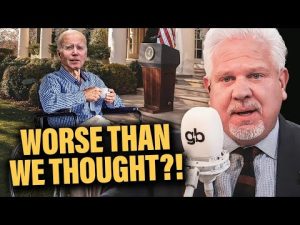In a world where geopolitics can sometimes feel like a board game played by the most powerful, here comes an unexpected topic: Greenland. Who would have ever thought that an icy island could become a centerpiece of international strategy? Yet, President Trump has resumed spotlighting Greenland like never before, emphasizing the island’s significance to U.S. security — a pressing matter if you ask him. It’s not just a few snow-covered mountains; it’s a critical point in the strategic chess game against China and Russia. Chinese and Russian ships are apparently parking themselves all over Greenland’s waterways as if no one else ever thought to be there.
Senator Pete Ricketts seems to understand the urgency in these icy matters. It’s not just about the rhetoric, he suggests. It’s about the actions being taken to secure national security, as well as the security of the Greenlanders themselves. Let’s face it, Greenland probably needs a bit of the ol’ red, white, and blue, according to the good Senator. After all, why leave it vulnerable to those pesky international waters when you can wave an American flag around and send a comforting military presence? Vice President Vance’s recent trip is a nod to serious discussions intended with Denmark and Greenland on the topic. The idea is to ensure that everybody wins—especially the United States.
Next, there’s the bugbear of tariffs—President Trump’s plans to use tariffs to level the playing field might sound like music to some ears and impending doom to others. Right now, other countries are charging the U.S. much higher tariffs than vice versa, a system as outdated as dial-up internet. This lopsided situation harks back to the days when we bent over backward after World War II, setting up favorable tariffs to bolster the global economy and combat the now defunct Soviet Union. Times have changed, folks, and so must these tariffs.
Senator Ricketts points out the eagerness of even some corporate entities to get on board, surprisingly aligning with some bigwig car manufacturers and the United Auto Workers. This shift suggests that American manufacturing could greatly benefit from a new trade balance. Jobs, American-made products, and robust industries may just become the rallying cry. The President is keen—let’s say insistent—on ensuring America stands resilient, reliant on its production capabilities, and not last-minute shipments from across the globe.
There’s always the question of short-term disruptions, especially as price tags might briefly flinch upwards for goods such as groceries and gas. But in the long run, for those embracing the vision, re-shoring manufacturing is a win for American independence and security. Not to mention, it’s about time America stops being the world’s doormat. Perhaps this will reignite a domestic manufacturing boom and ensure that our country is well-stocked with everything it needs—no import necessary. Yes, it looks like this administration is stirring the pot, and let’s make no mistake, the world is watching America redefine its stance on trade and security with dramatic flair.







